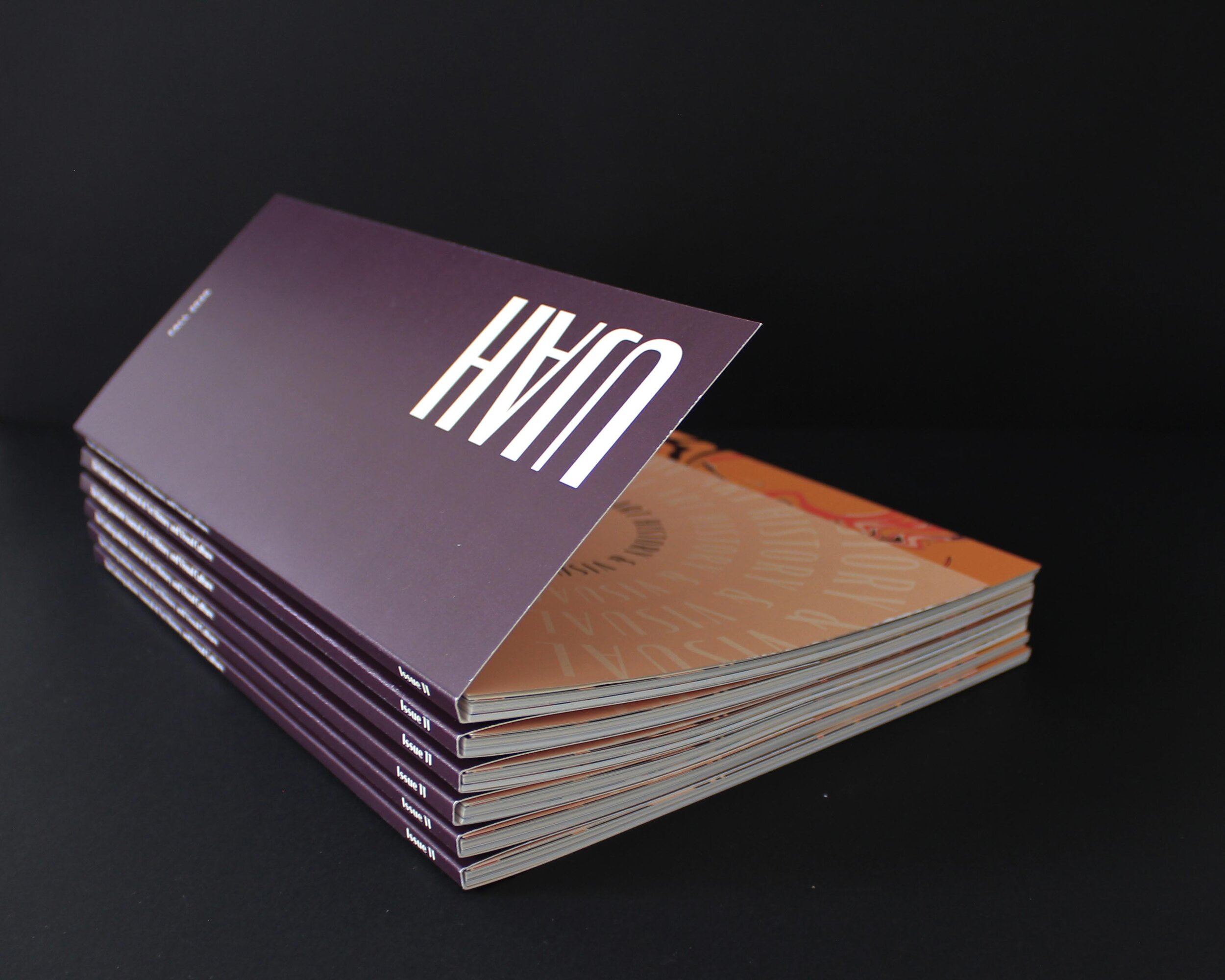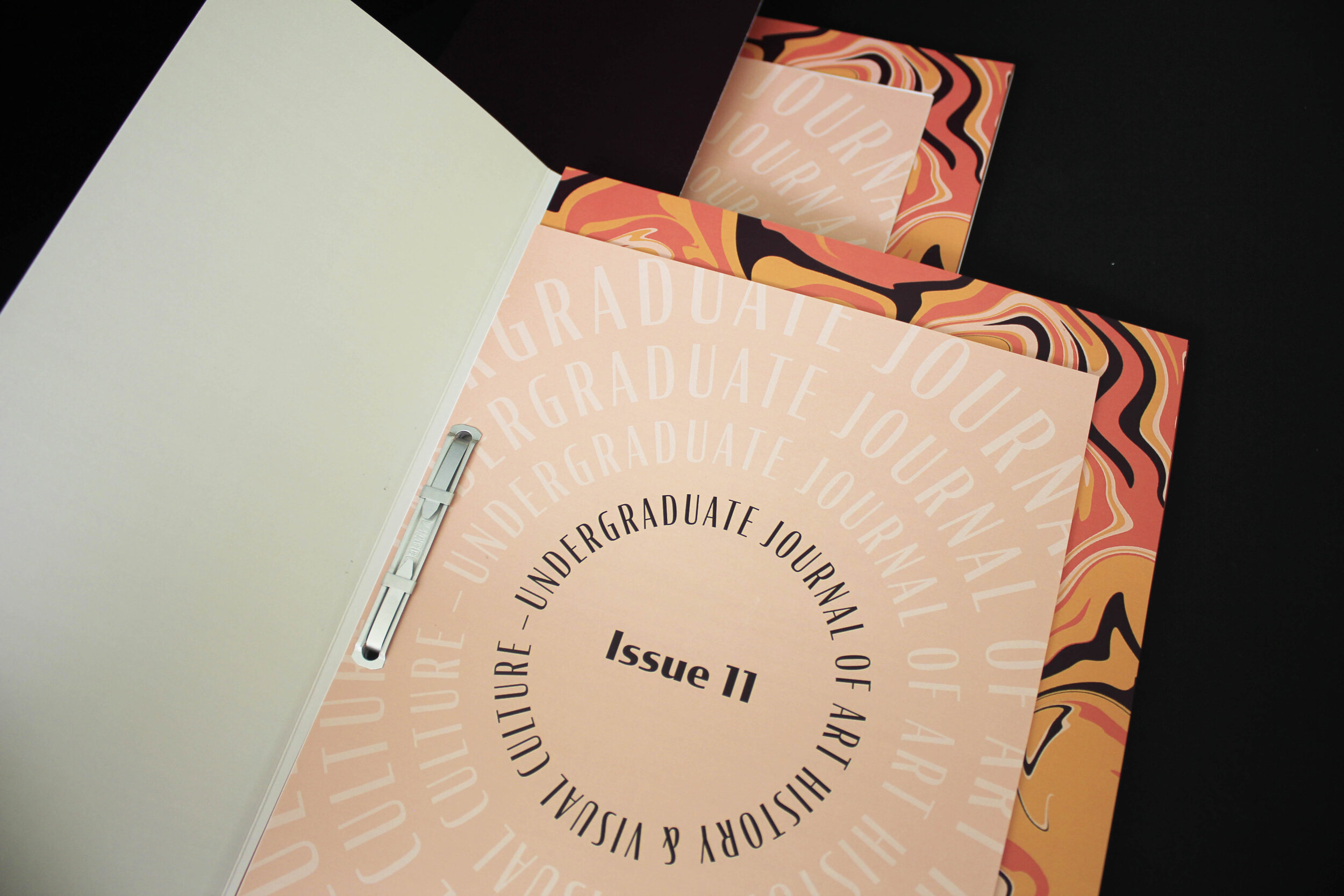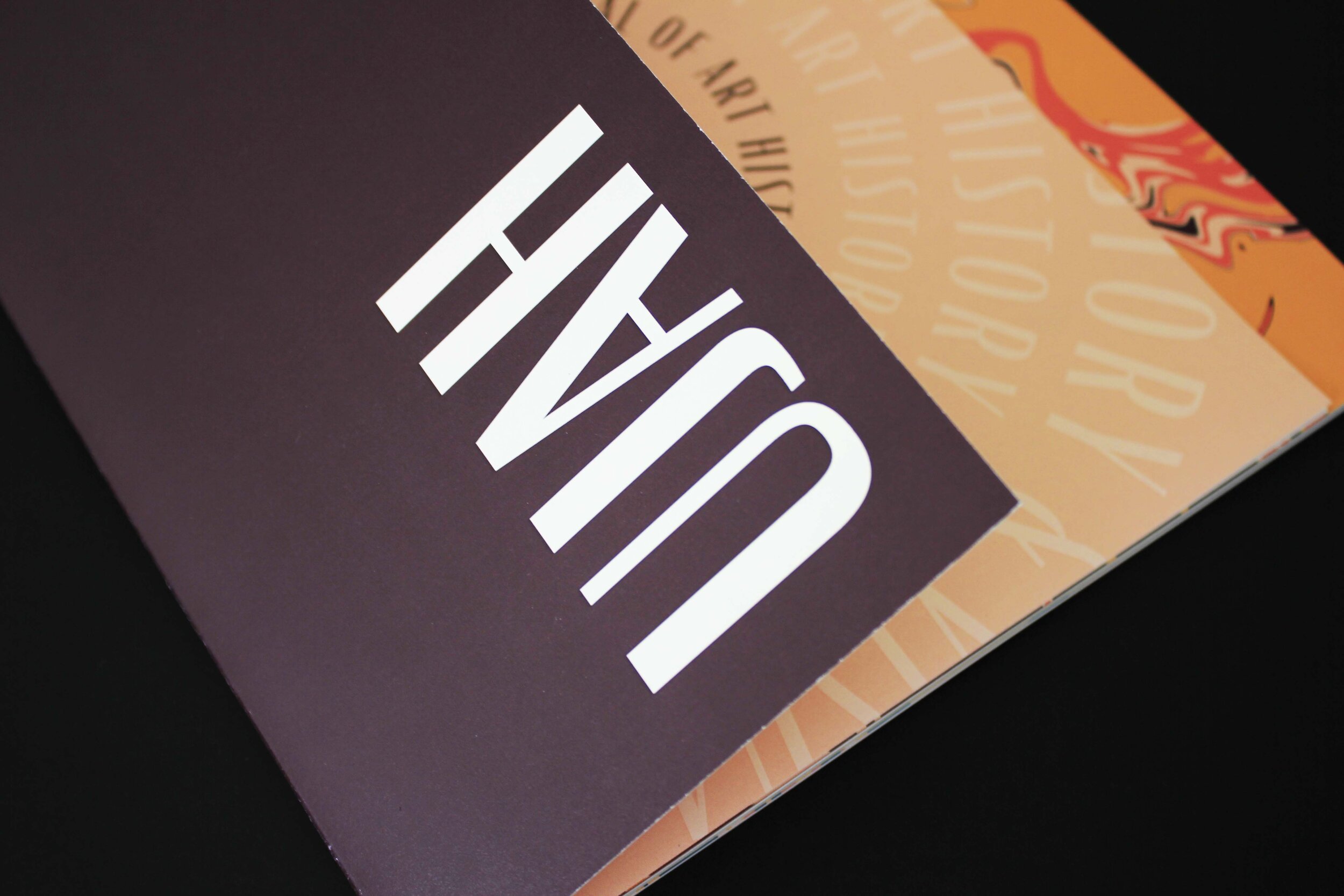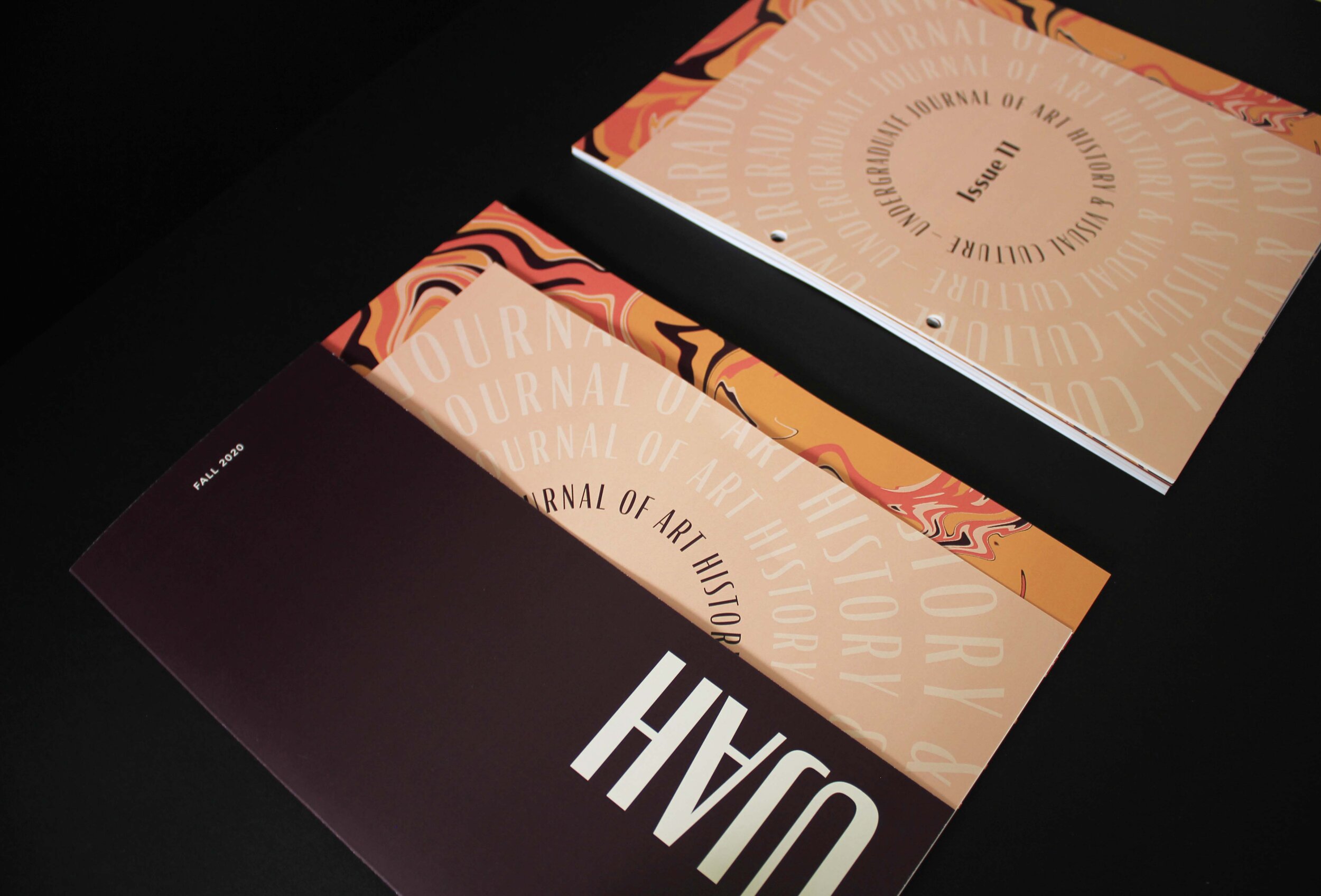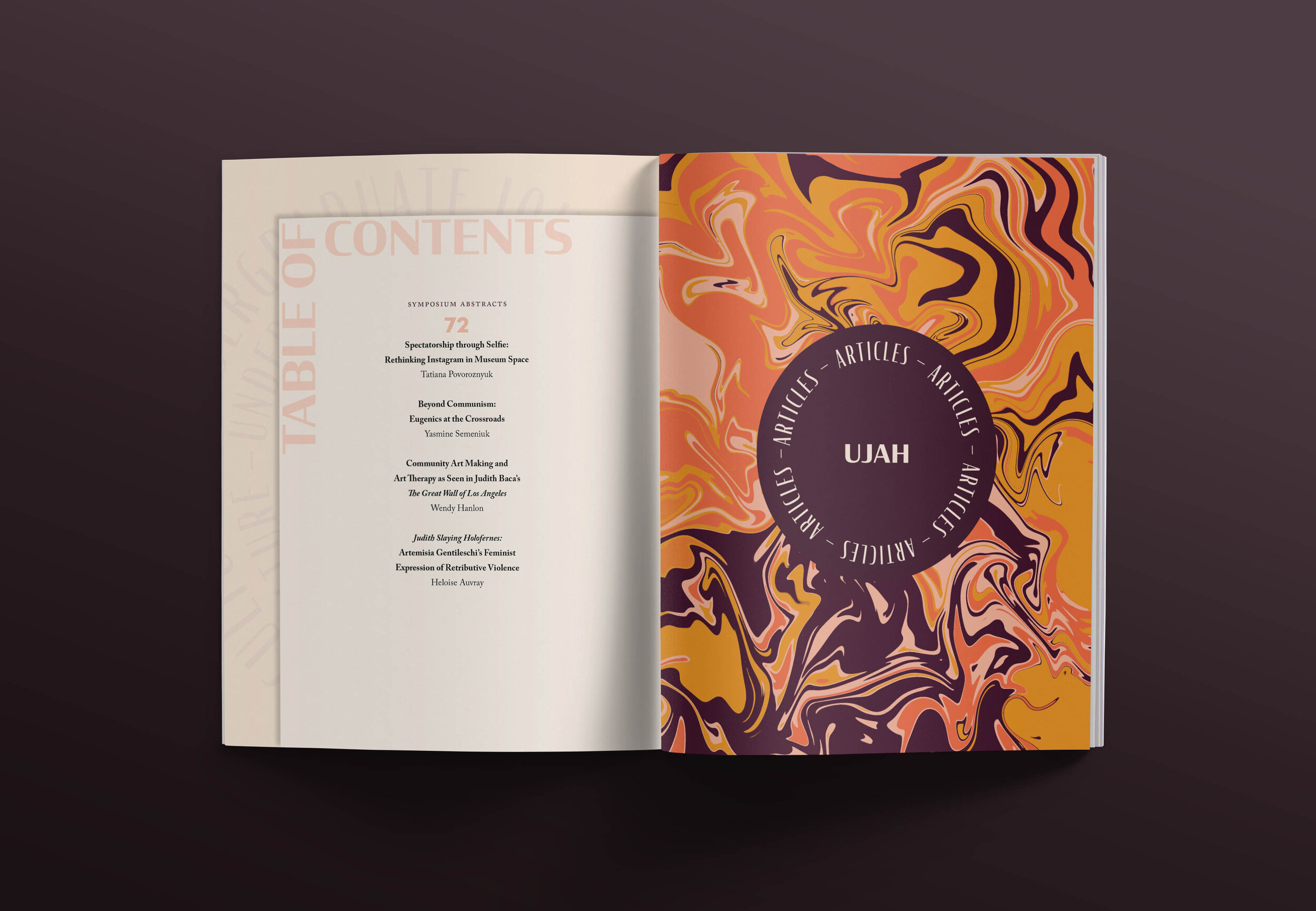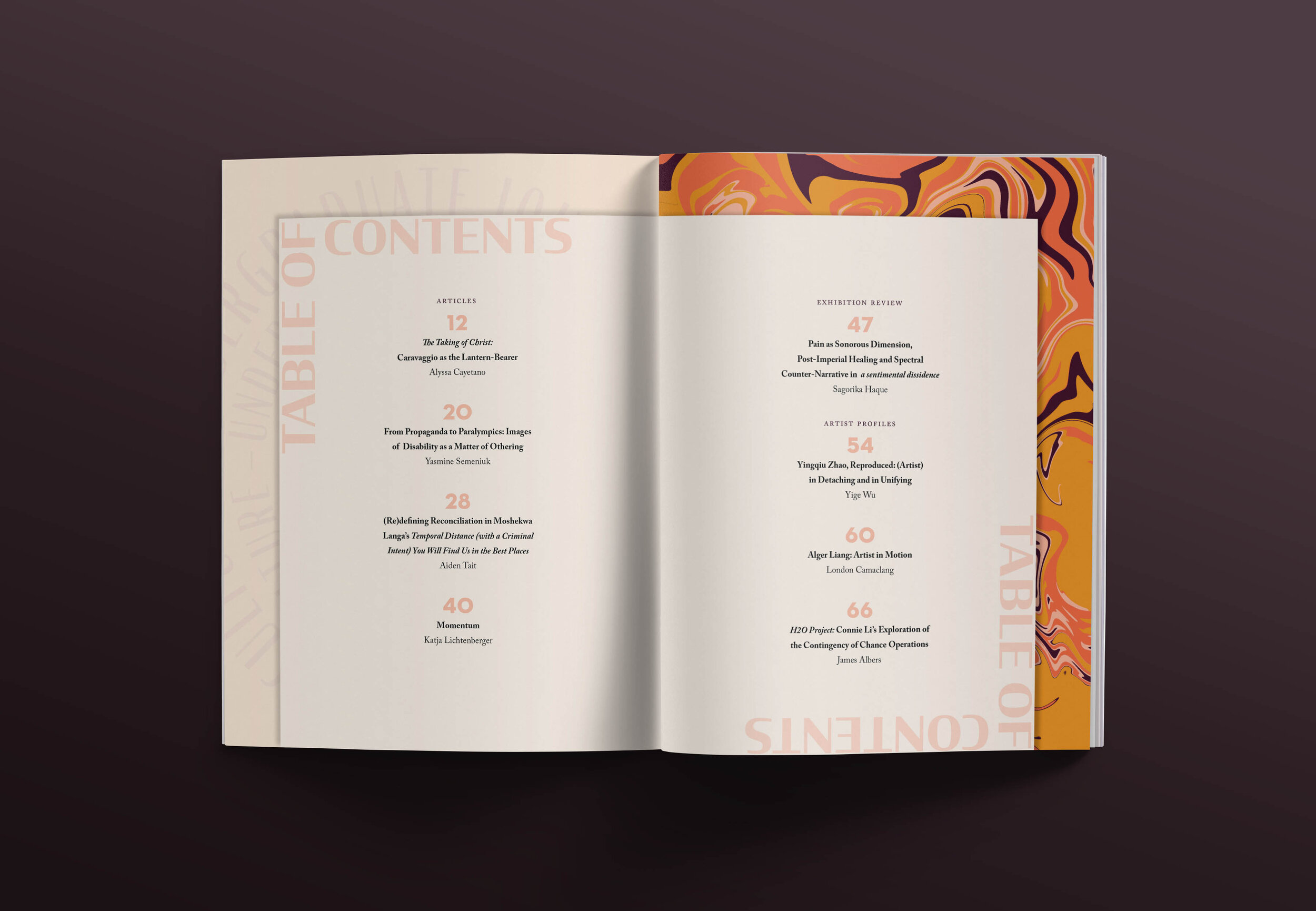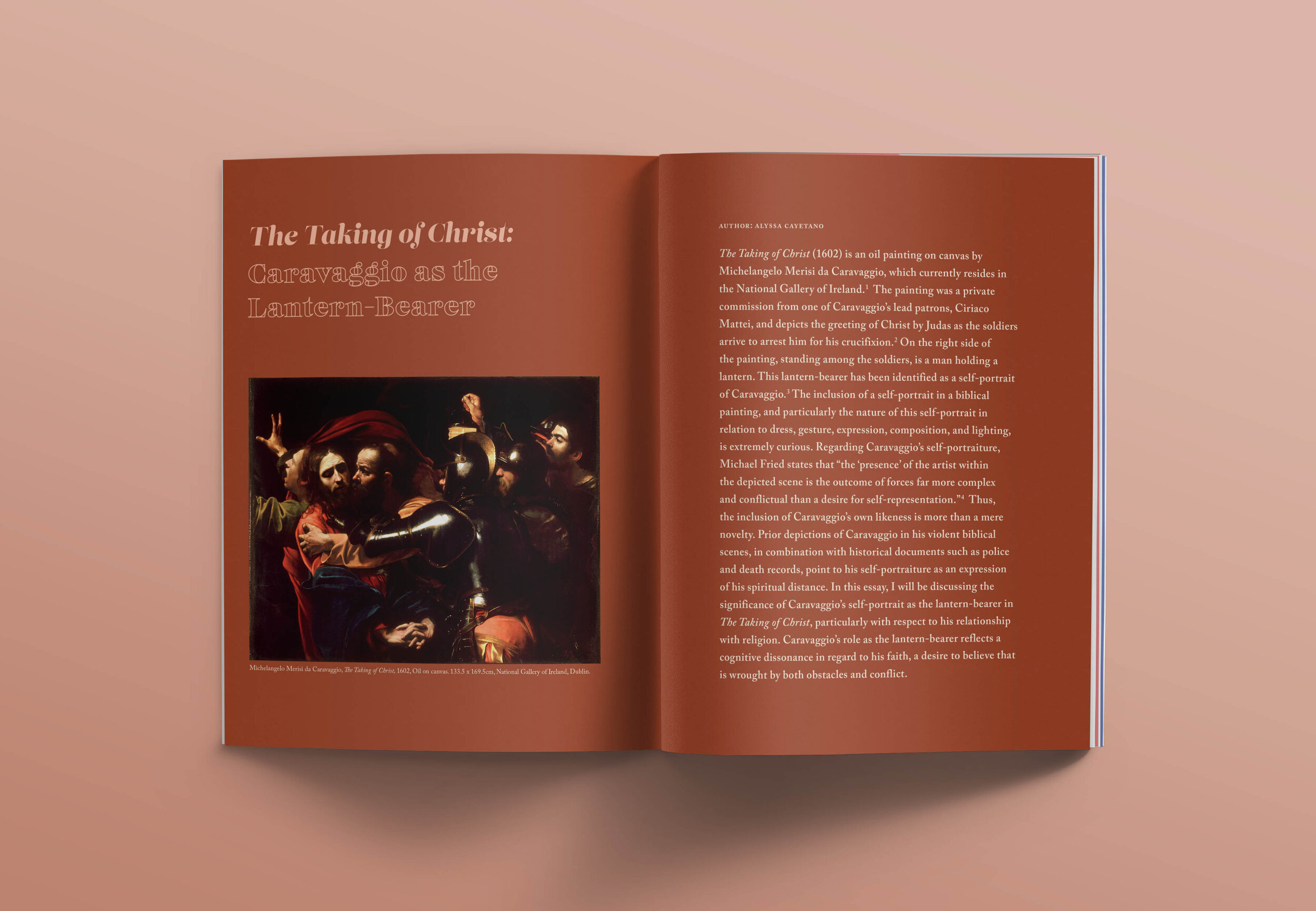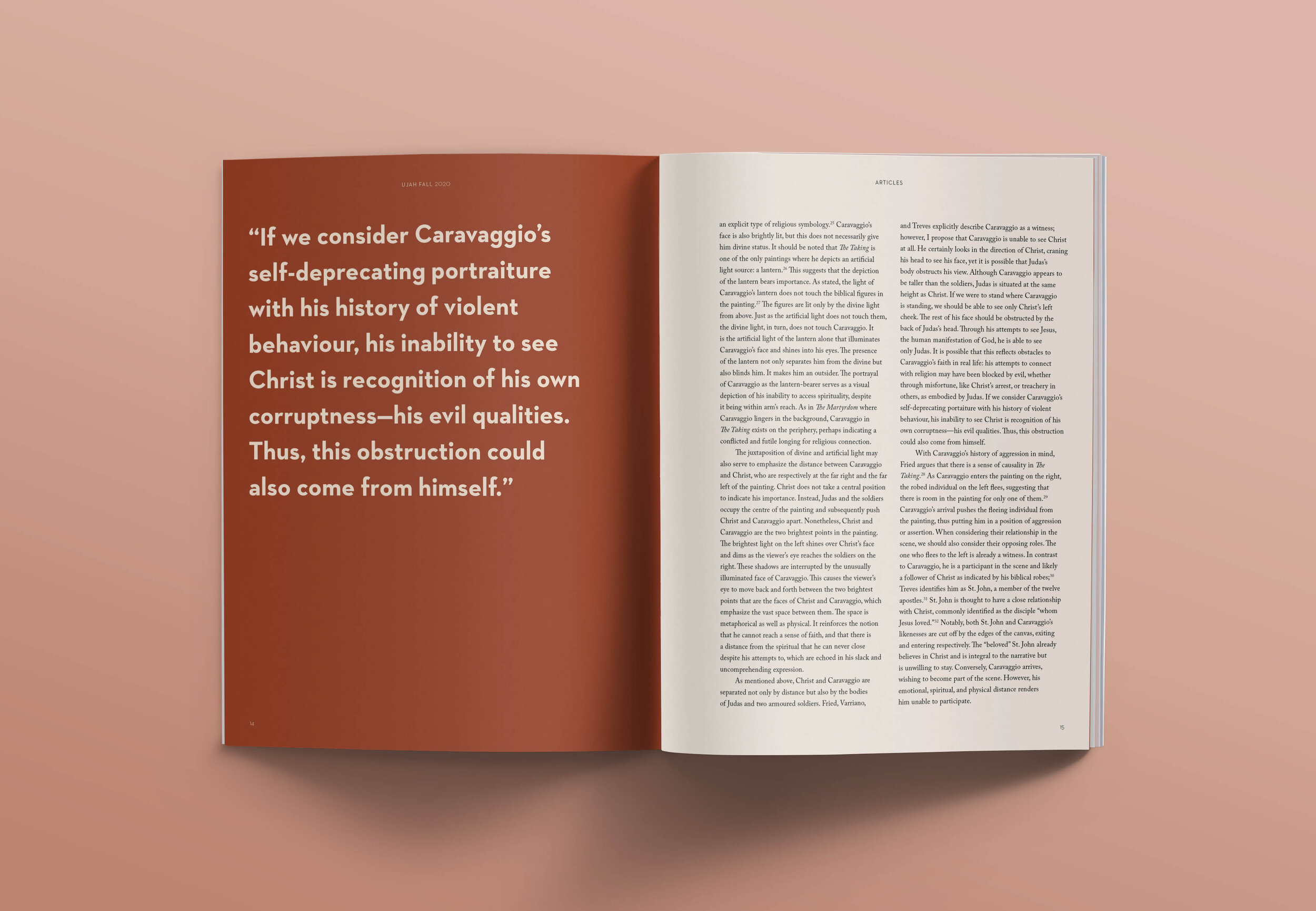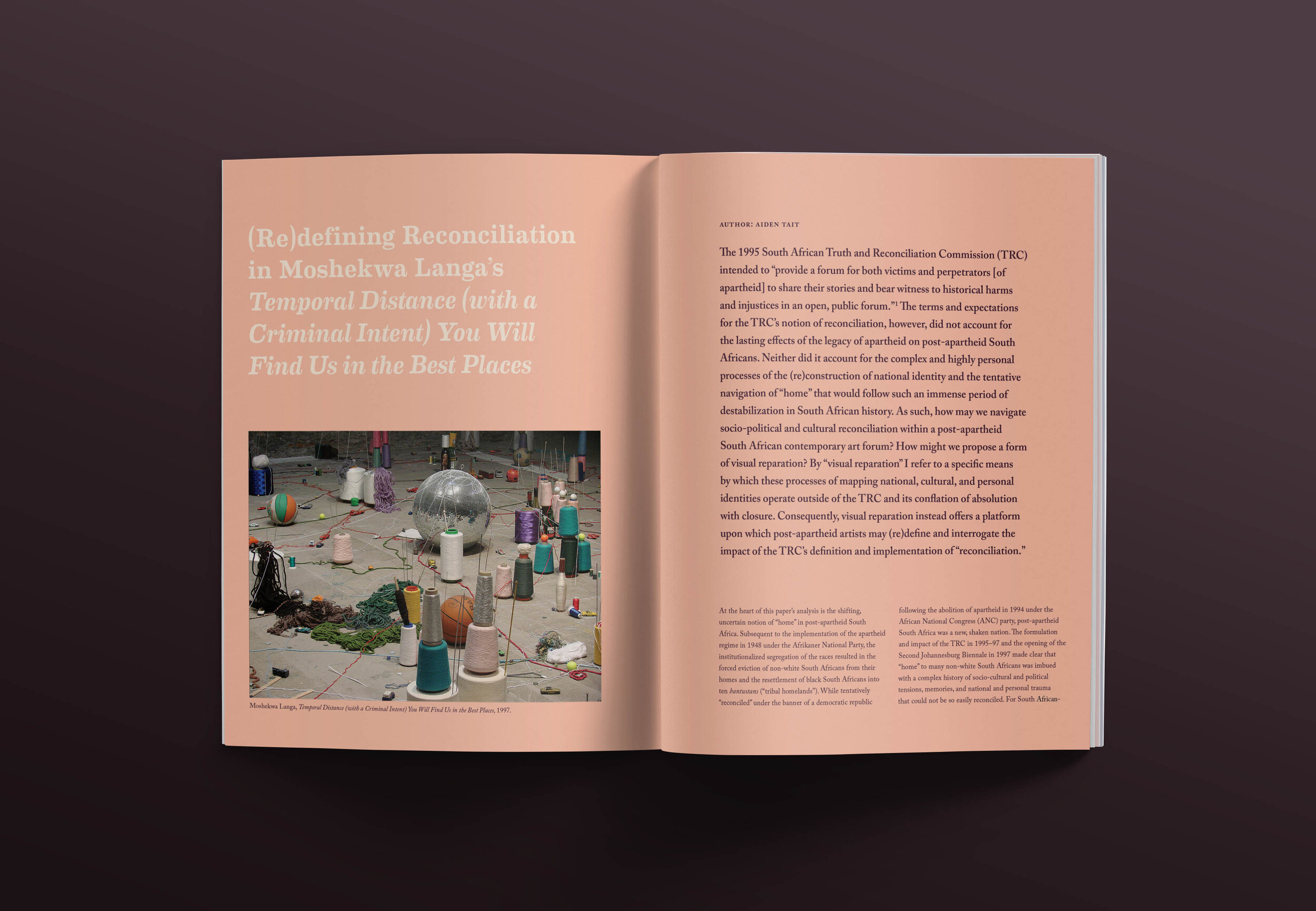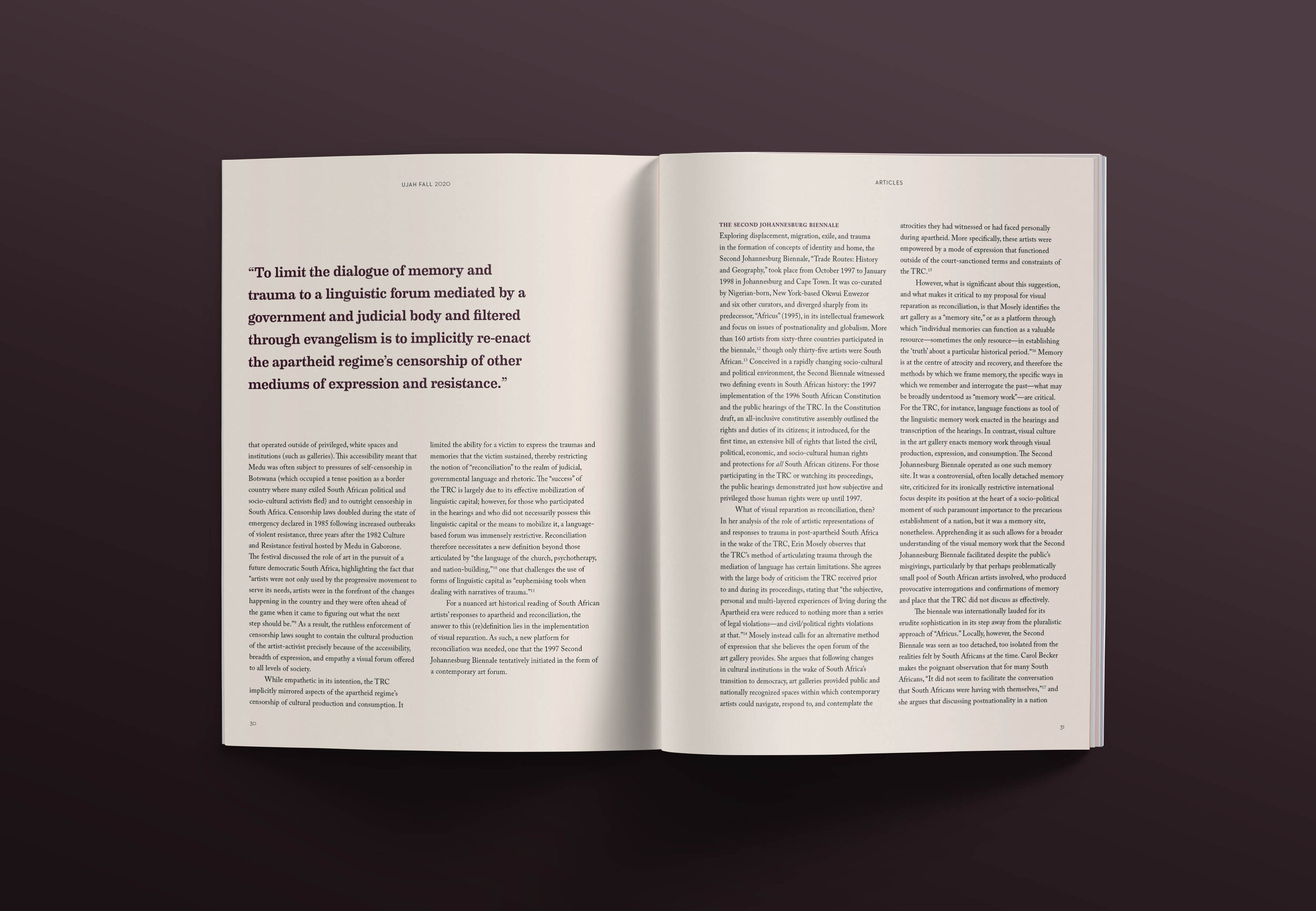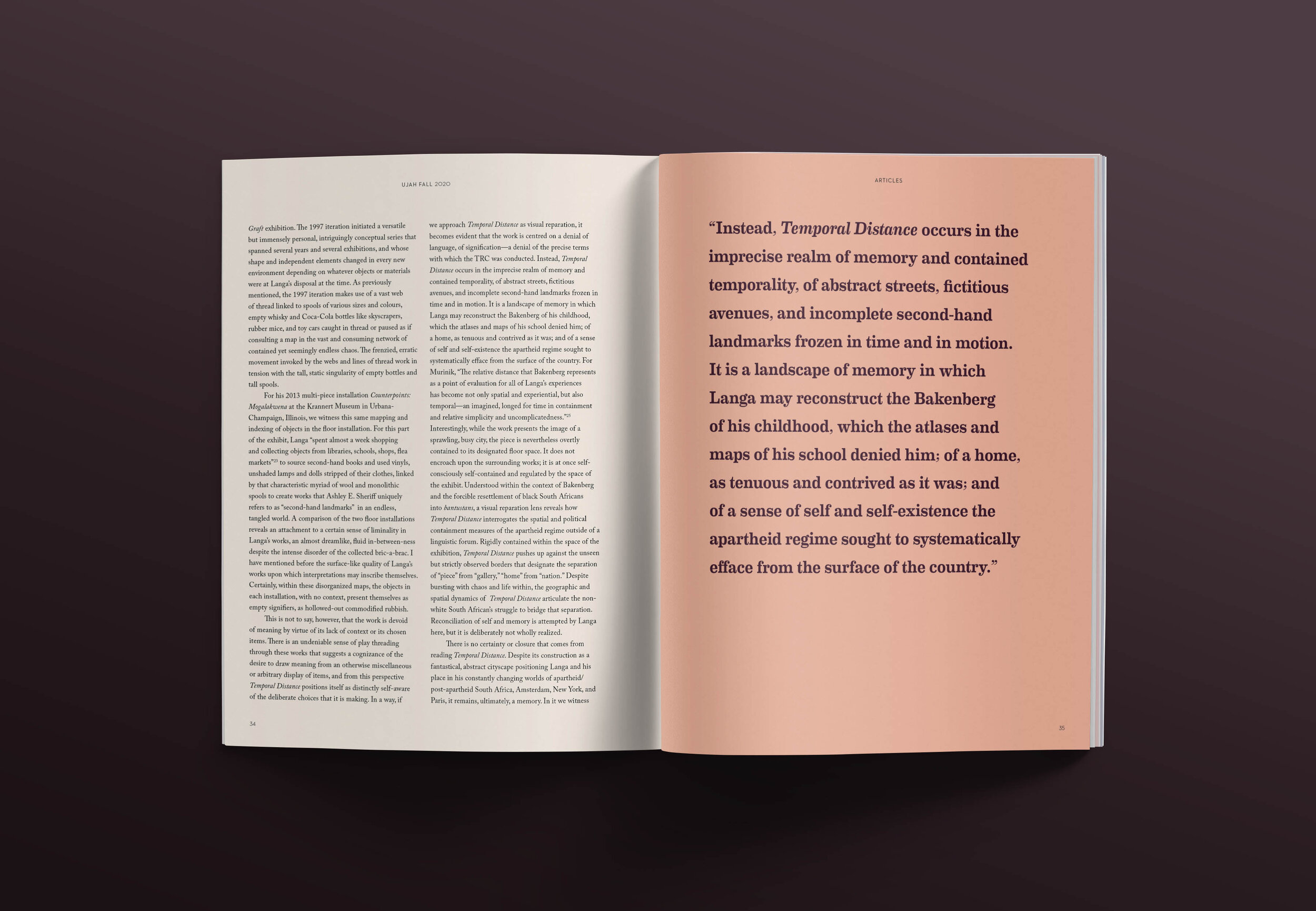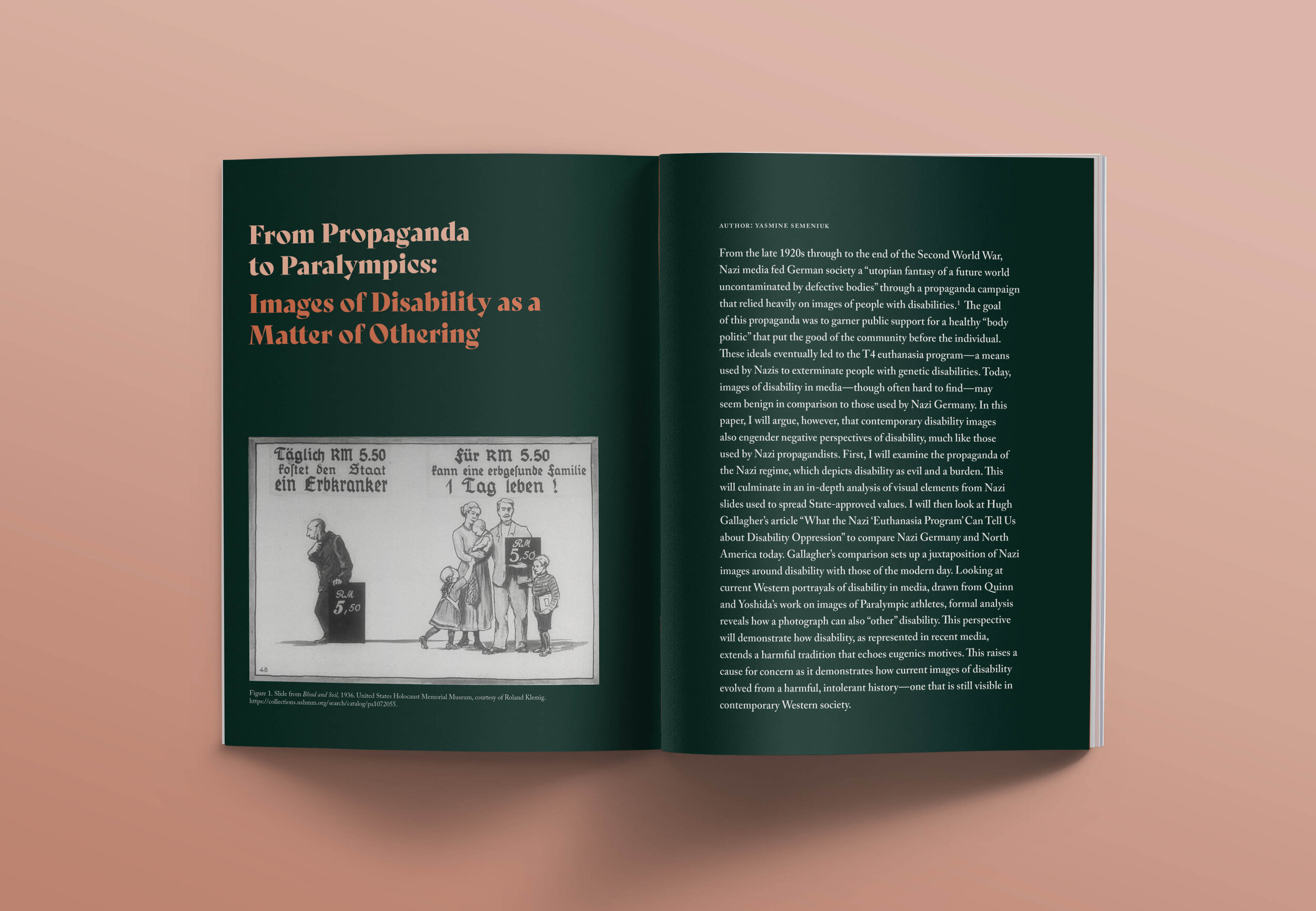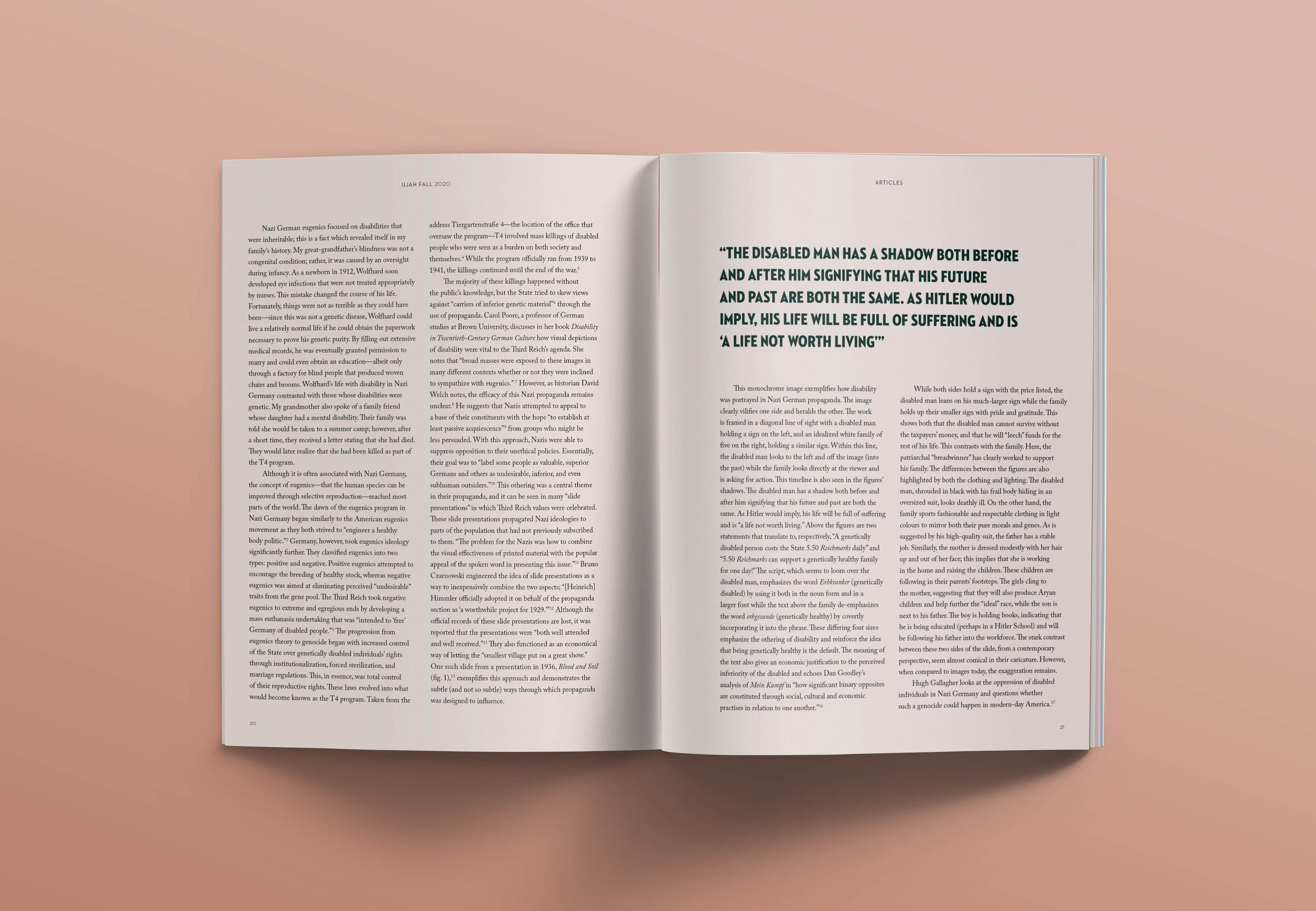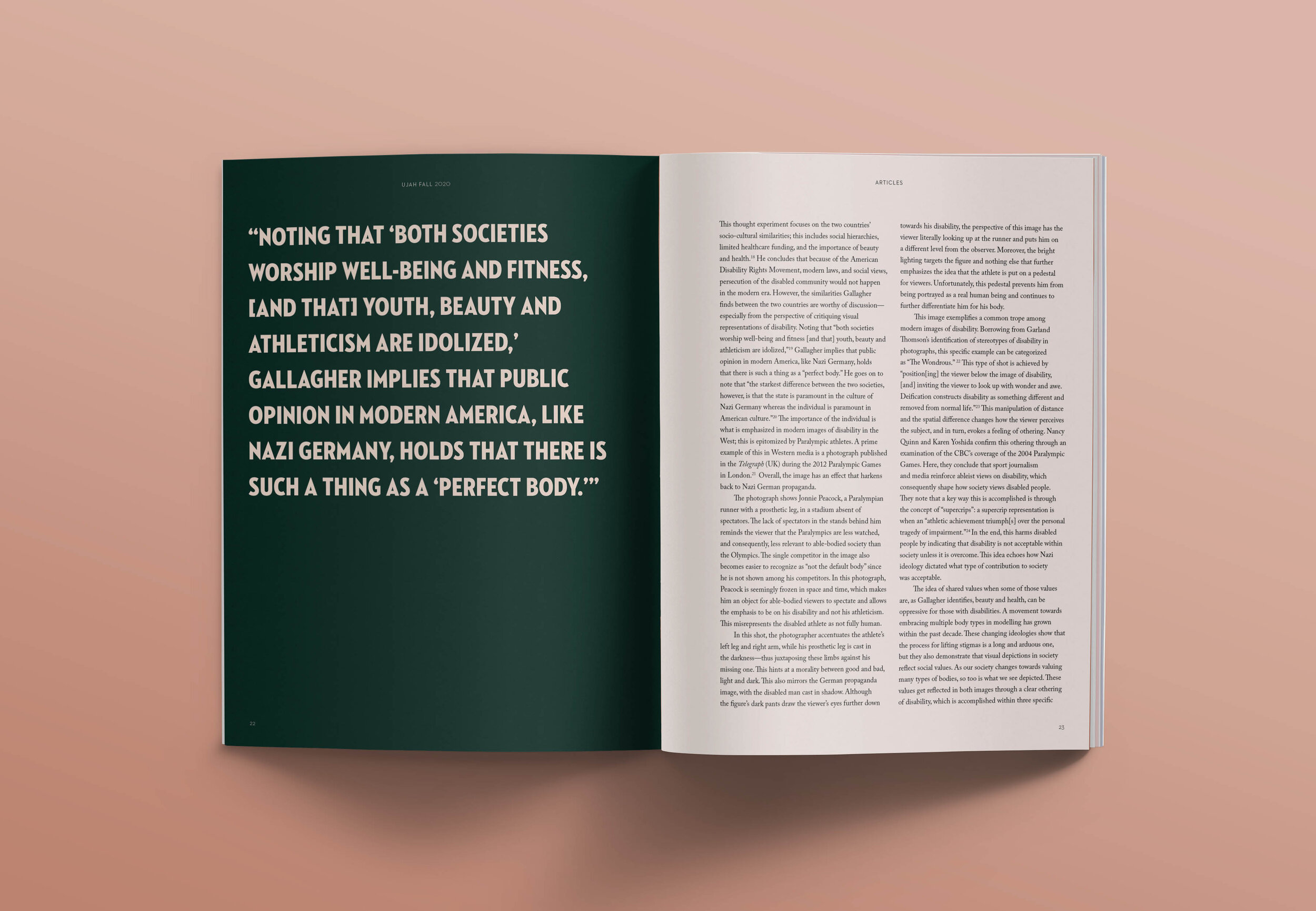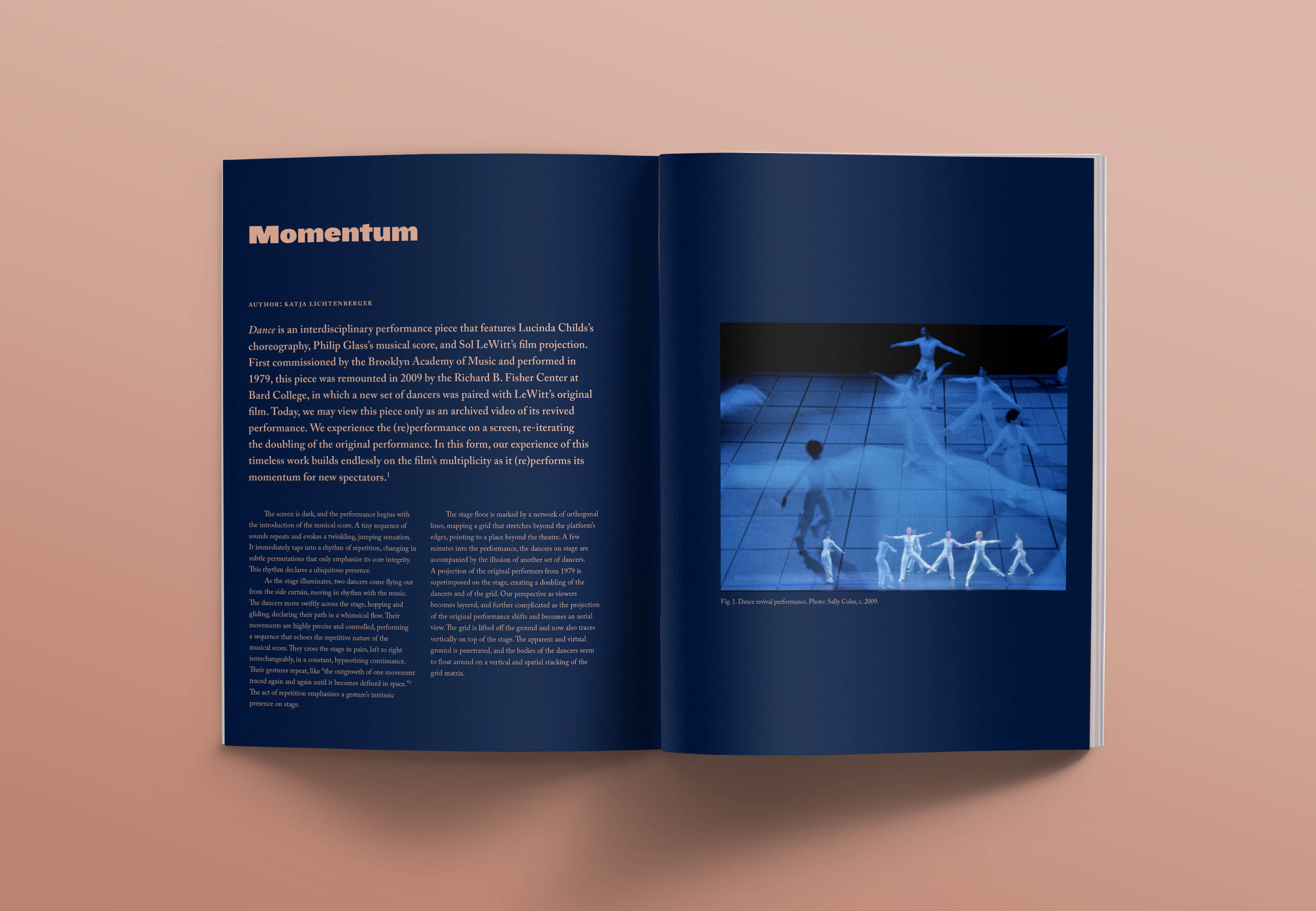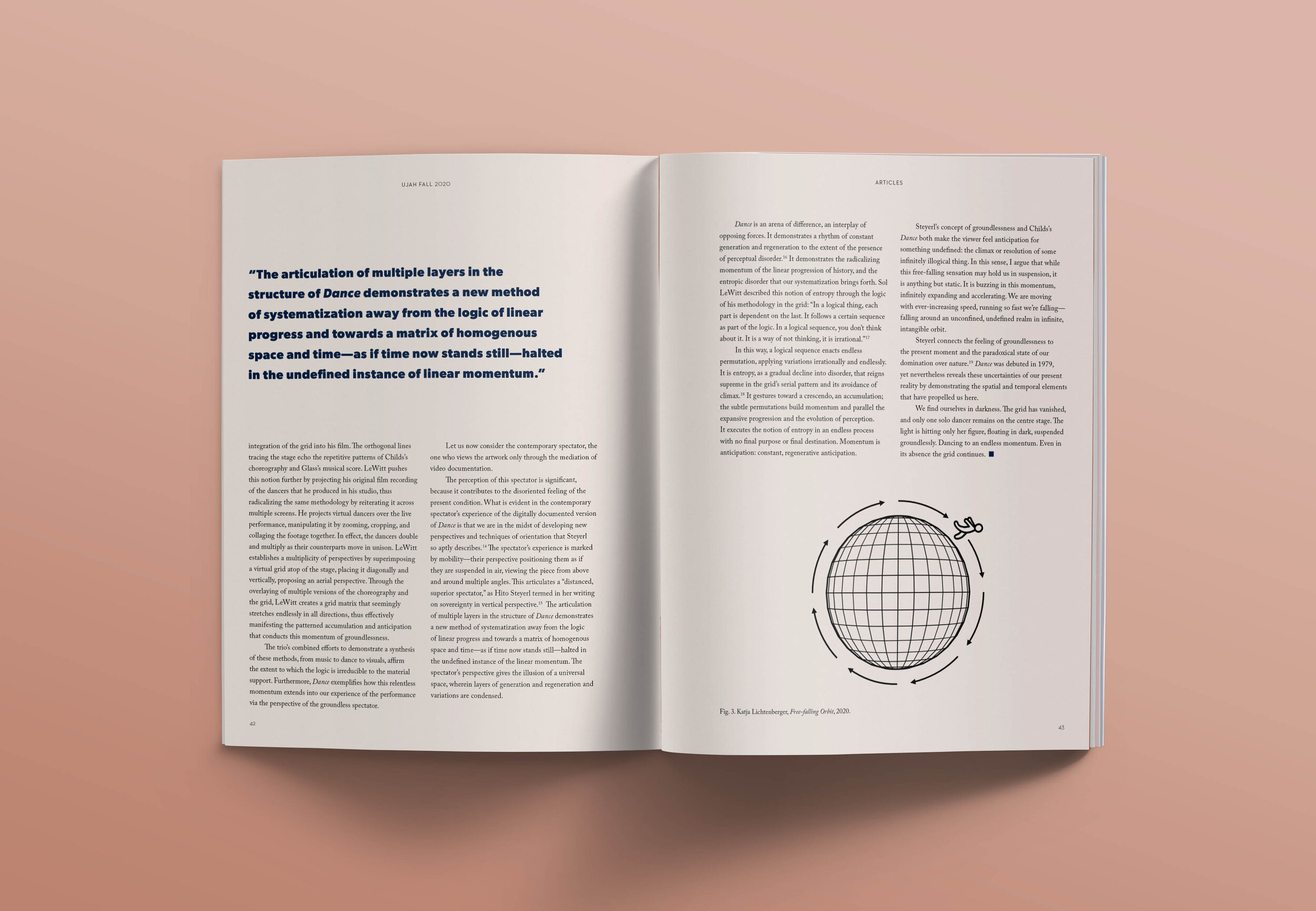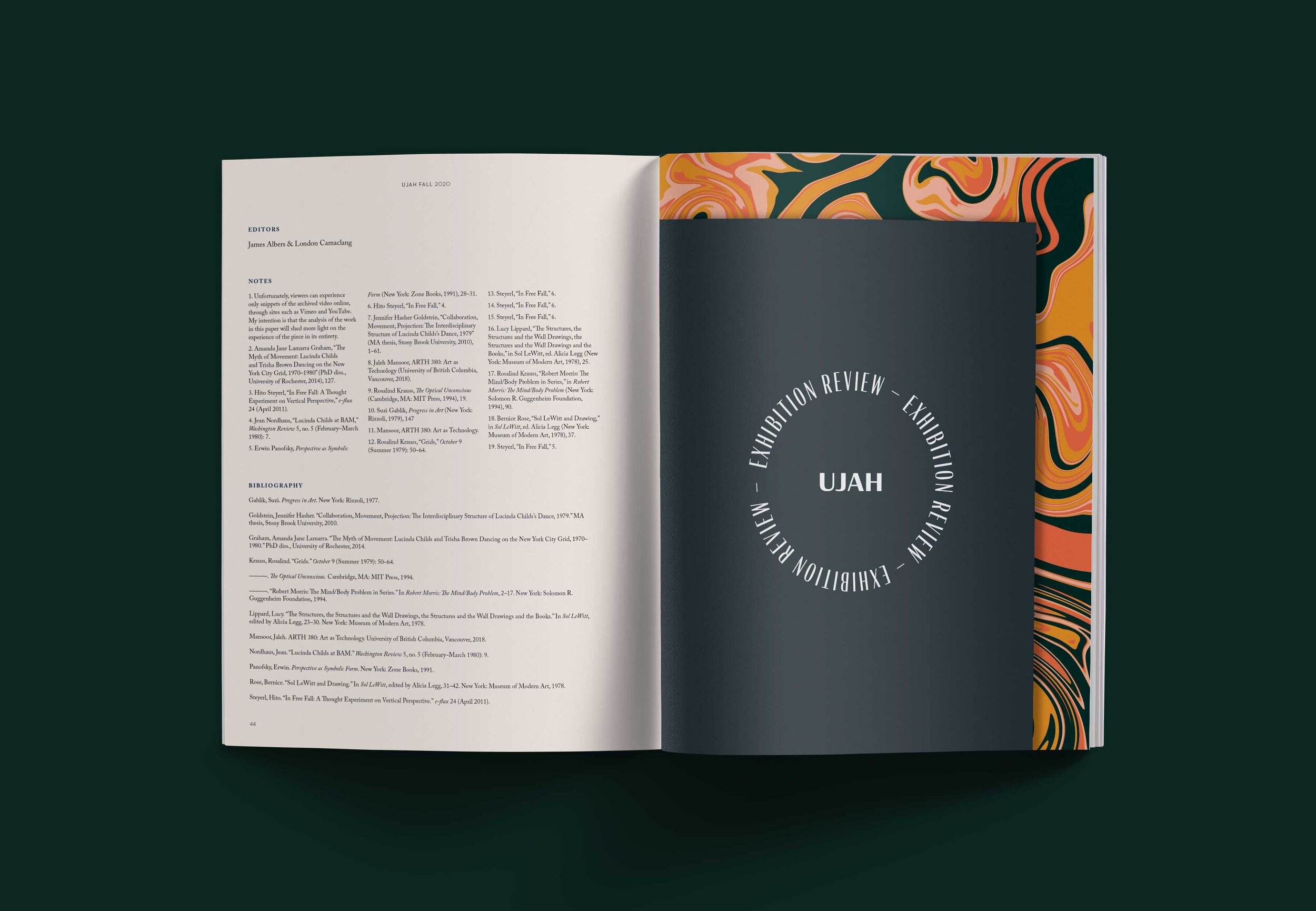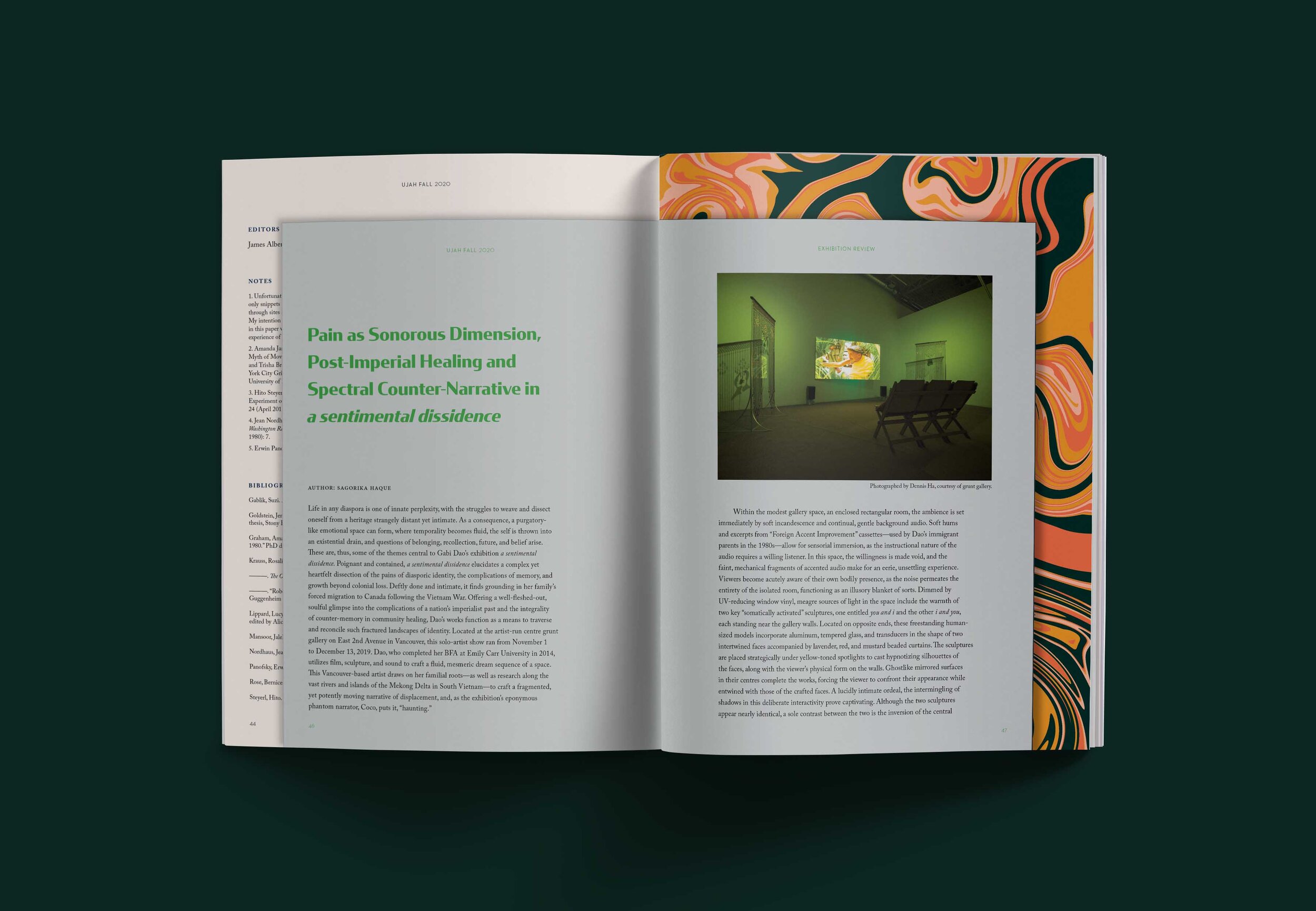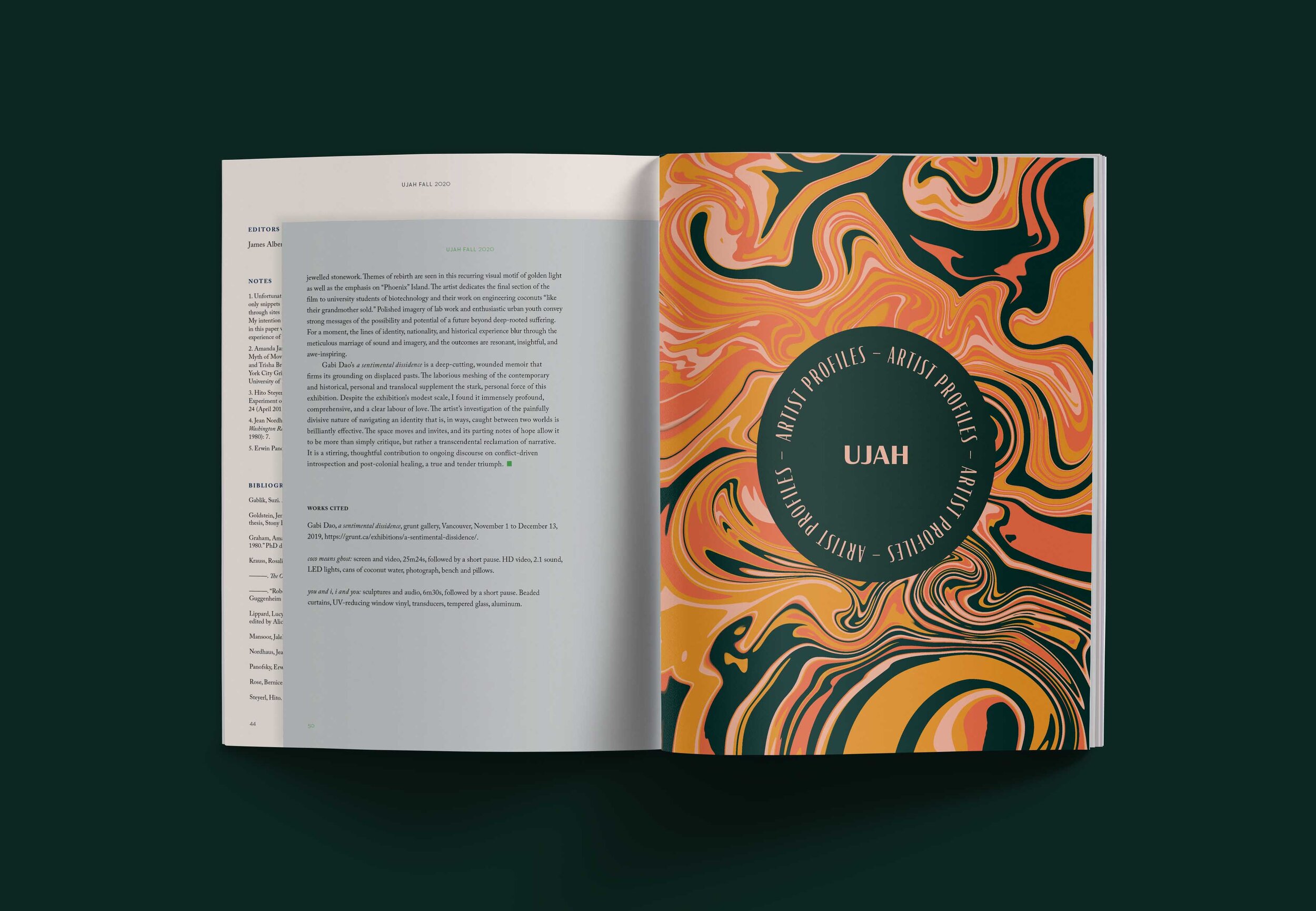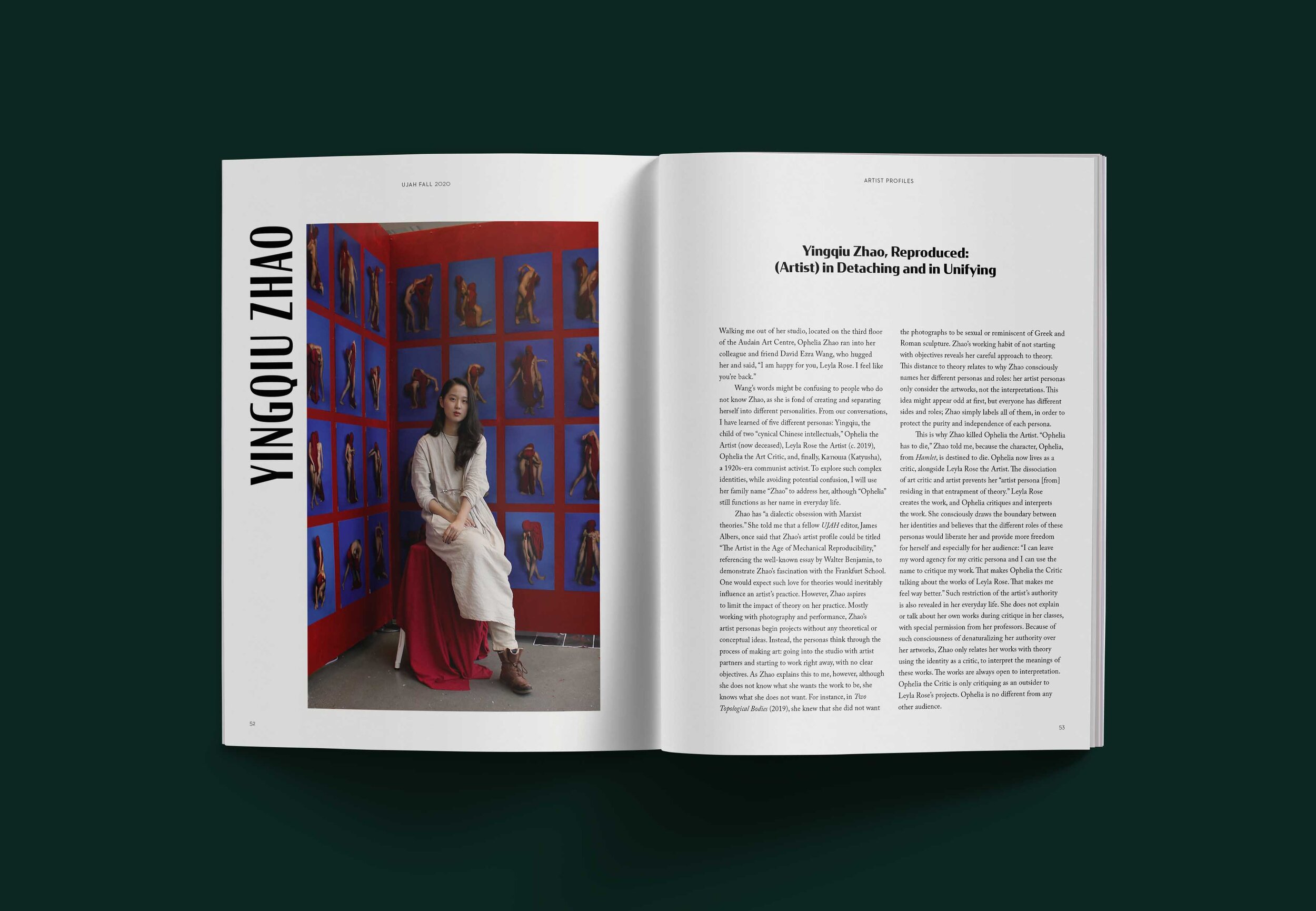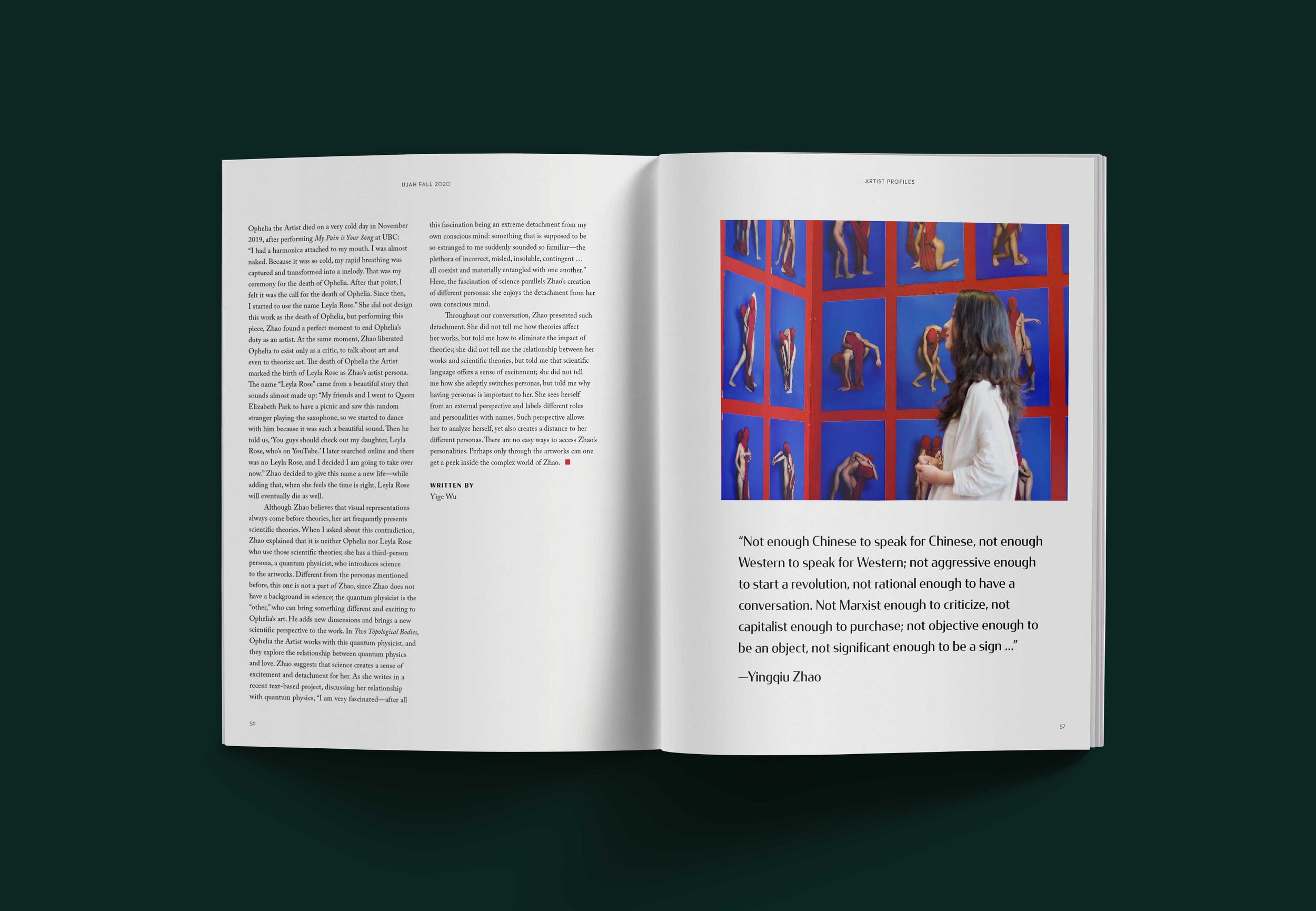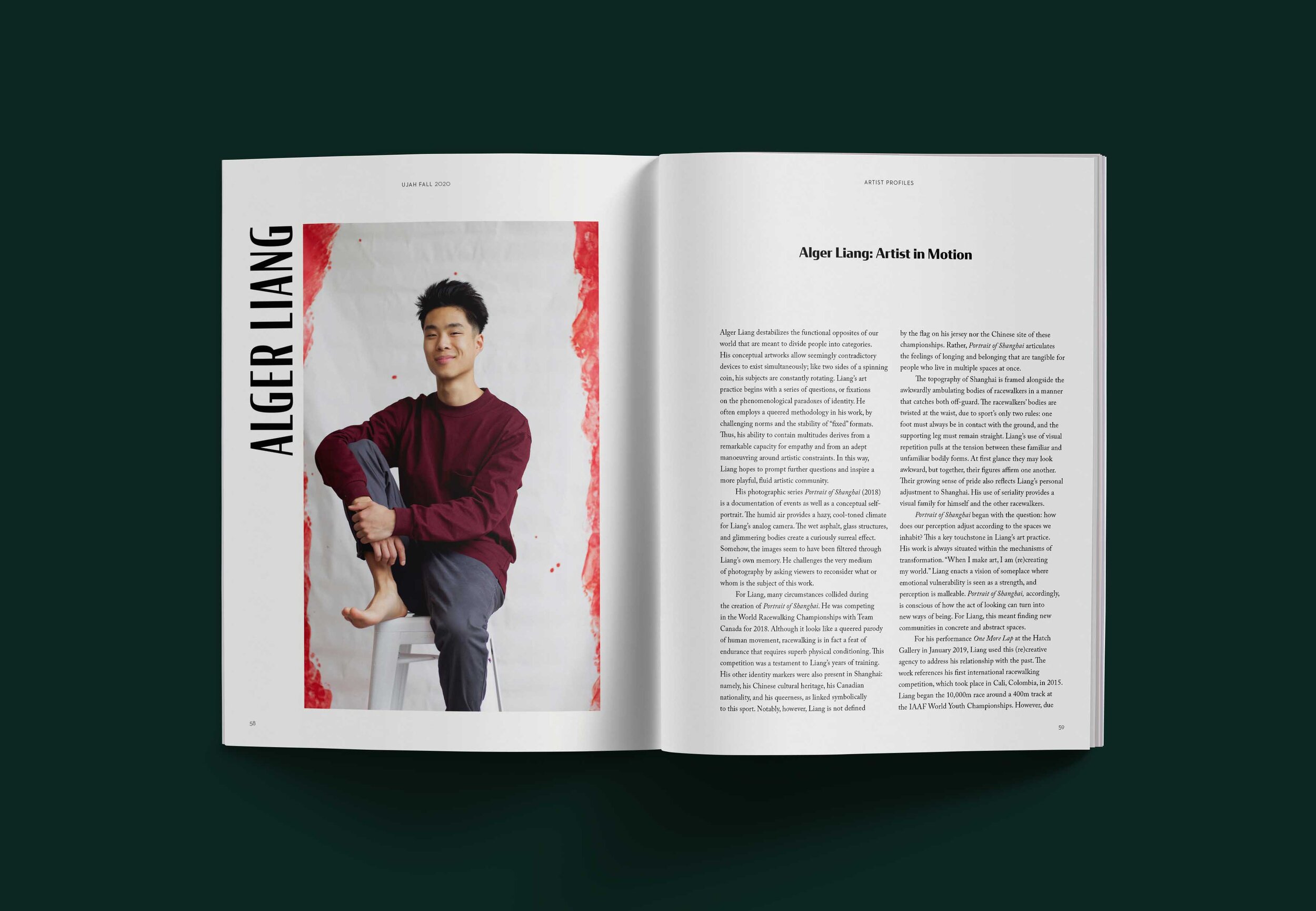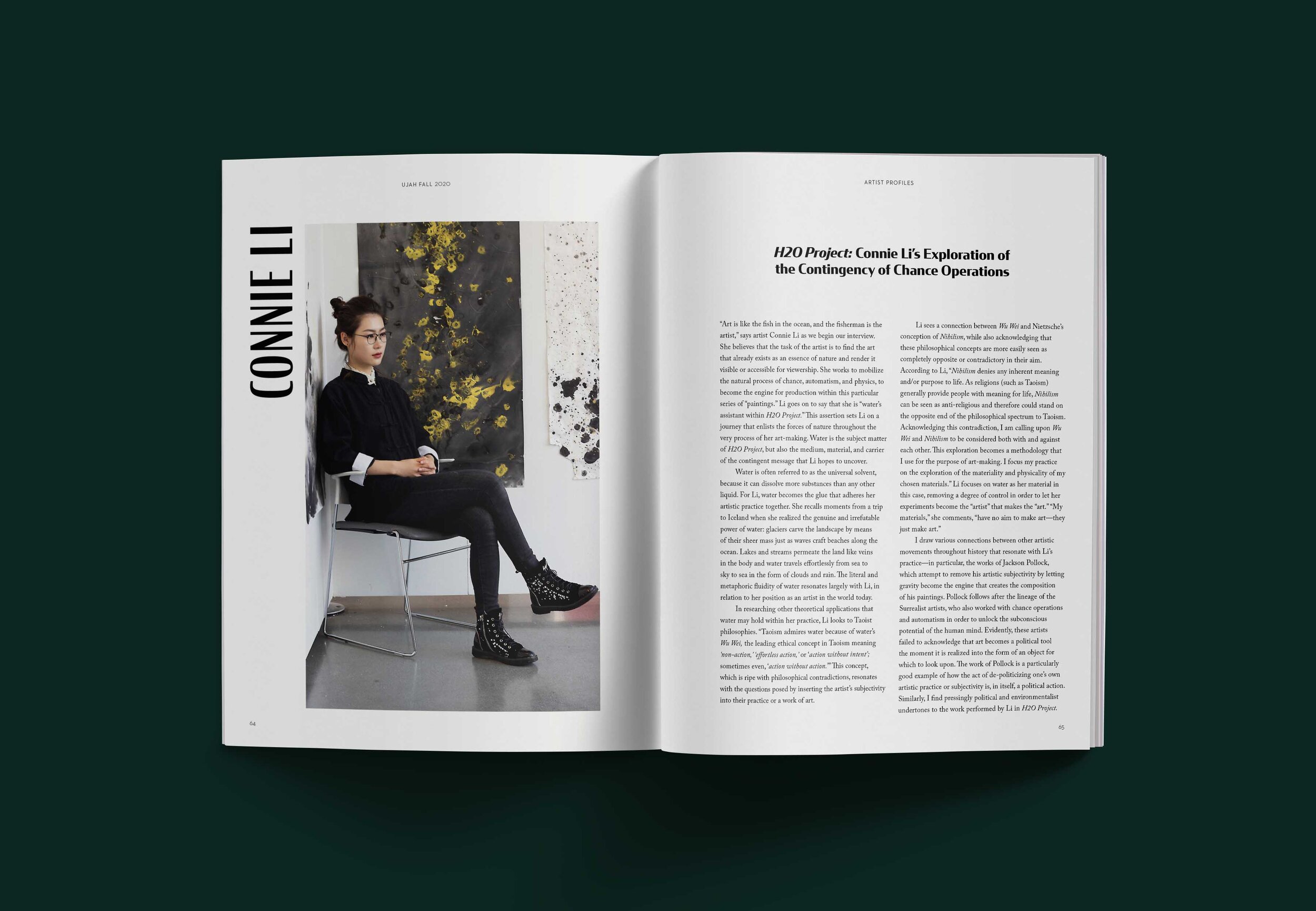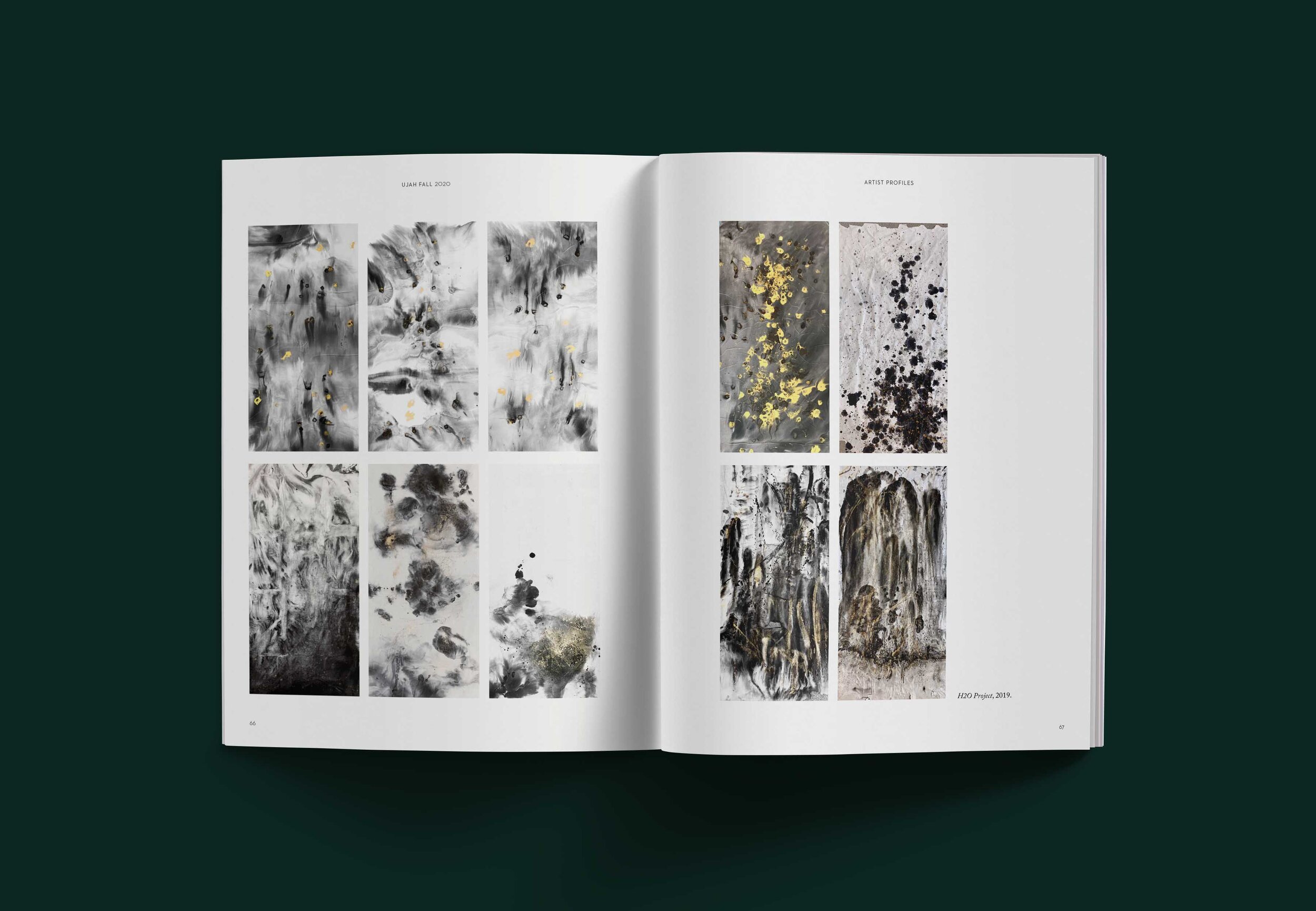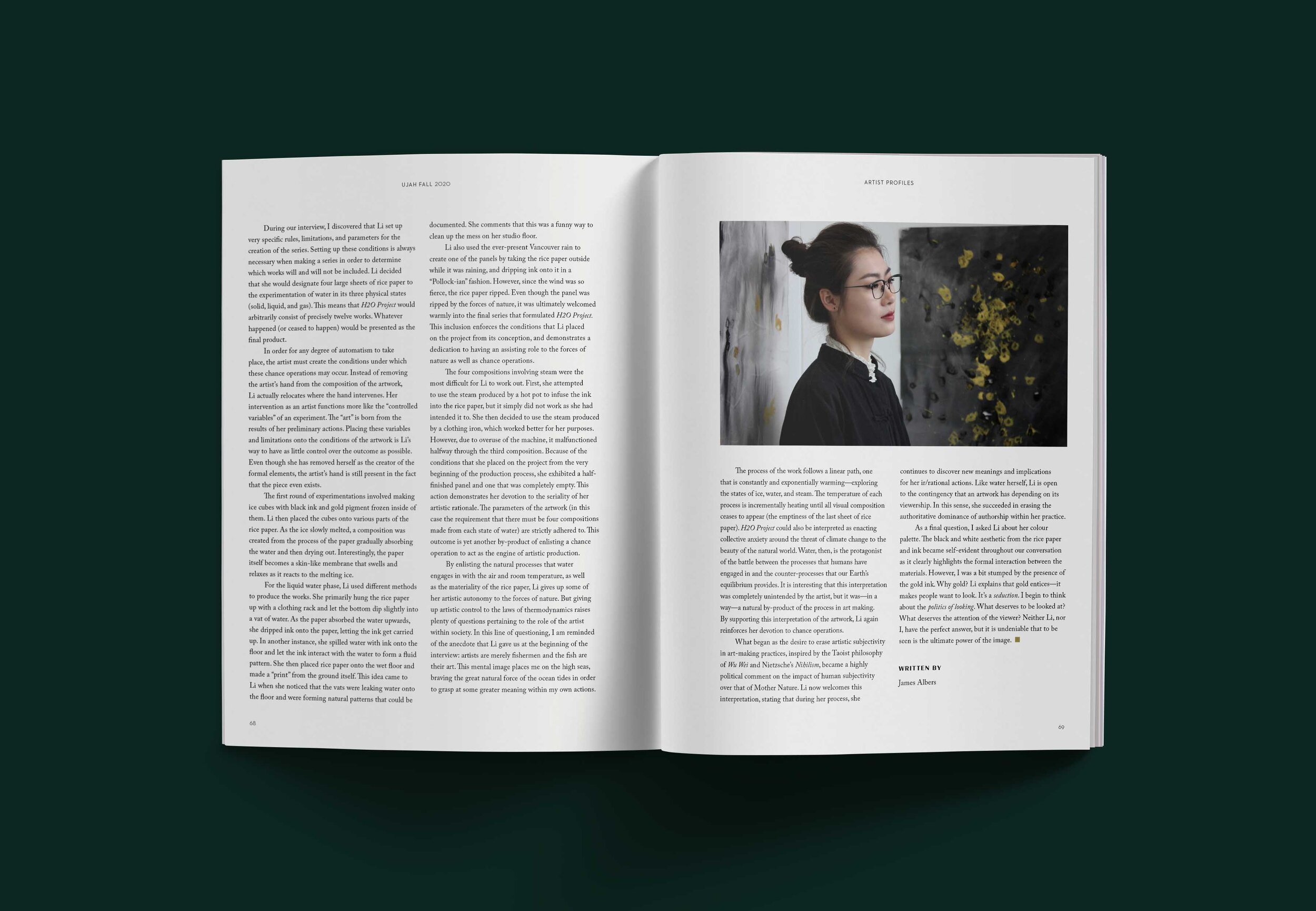masthead
Editor in Chief: Grace Chang
Managing Editor: Yuko Fedrau
Graphic Designer: Daniela Buitrago
Assistant Graphic Designer: Akari Esaka
Editors: James Albers, London Camaclang, Doris Fuller, Sagorika Haque, Dankile Lin, Alexi Paglinawan, Tatiana Povoroznyuk, Yige Wu
Contributing Artists: Connie Li, Alger Liang, Yingqiu Zhao
Contributing Writers: Alyssa Cayetano, Katja Lichtenberger, Yasmine Semeniuk, Aiden Tait
Articles
Michelangelo Merisi da Caravaggio, The Taking of Christ, 1602, Oil on Canvas. 133.5cm x 169.5cm, National Gallery of Ireland, Dublin.
The Taking of Christ: Caravaggio as the Lantern-Bearer
Alyssa Cayetano
“If we consider Caravaggio’s self-deprecating portraiture with his history of violent behaviour, his inability to see Christ is recognition of his own corruptness—his evil qualities. Thus, this obstruction could also come from himself.”
Slide from Blood and Soil, 1936. United States Holocaust Memorial Museum, courtesy of Roland Klemig. https://collections.ushmm.org/search/catalog/pa1072055.
From Propaganda to Paralympics: Images of Disability as a Matter of Othering
Yasmine Semeniuk
“Noting that ‘both societies worship well-being and fitness, [AND THAT] youth, beauty and athleticism are idolized,’ Gallagher implies that public opinion in modern America, like Nazi Germany, holds that there is such a thing as a ‘perfect body.’”
Moshekwa Langa, Temporal Distance (with a Criminal Intent) You Will Find Us in the Best Places, 1997.
(Re)defining Reconciliation in Moshekwa Langa’s Temporal Distance (with a Criminal Intent) You Will Find Us in the Best Places
Aiden Tait
“Memory is at the centre of atrocity and recovery, and therefore the methods by which we frame memory, the specific ways in which we remember and interrogate the past—what may be broadly understood as ‘memory work’—are critical.”
Katja Lichtenberger, Free-falling Orbit, 2020.
Momentum
Katja Lichtenberger
“The articulation of multiple layers in the structure of Dance demonstrates a new method of systematization away from the logic of linear progress and towards a matrix of homogenous space and time—as if time now stands still—halted in the undefined instance of linear momentum.”
Reviews
Gabi Dao, a sentimental dissidence, 2019. Photographed by Dennis Ha, courtesy of grunt gallery.
Pain as Sonorous Dimension,Post-Imperial Healing and Spectral Counter-Narrative in a sentimental dissidence
Sagorika Haque
ARTIST PROFILES
Two Topological Bodies, 2019.
Yingqiu Zhao, Reproduced: (Artist) in Detaching and in Unifying
Yige Wu
One More Lap, 2018.
Alger Liang: Artist in Motion
London Camaclang
H2O Project, 2019.
H2O Project: Connie Li’s Exploration of the Contingency of Chance Operations
James Albers
The Undergraduate Journal of Art History & Visual Culture (UJAH) is a free student journal published by the Department of Art History, Visual Art and Theory and the Art History Students’ Association at the University of British Columbia. All material is copyright © 2020 UJAH, authors. All inquiries can be emailed to ubc.ujah@gmail.com.
UJAH gratefully acknowledges the financial support of the UBC Art History Students’ Association and the UBC Arts Undergraduate Society, as well as the editorial and financial support of the Department of Art History, Visual Art and Theory at the University of British Columbia.
UJAH’s editorial team would like to acknowledge that we work and learn on the traditional, ancestral, and unceded territory of the Musqueam people.
Issue 11, 2020. Published since 2009. Cover design by Daniela Buitrago.
